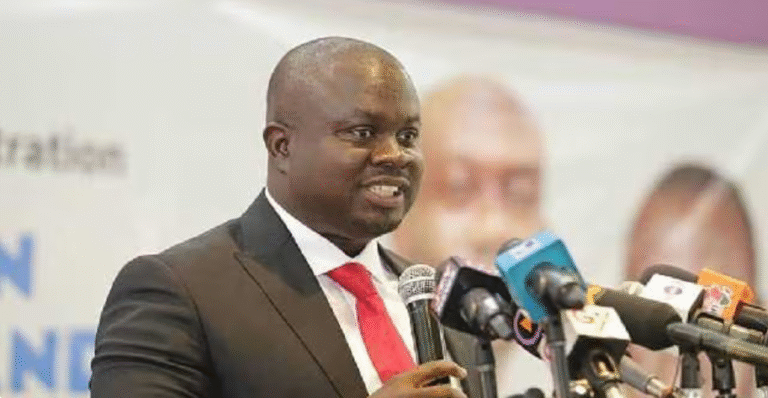The Ghana Journalists Association (GJA) has firmly rejected the Misinformation, Disinformation, Hate Speech and Publication of Offensive Materials Bill (MDHI Bill), 2025, in its current form, citing a lack of transparency and broad stakeholder consultation.
According to GJA President Albert Kwabena Dwumfour, while the Association recognizes the urgent need to address misinformation and hate speech, the process leading to the drafting of the Bill “has not met the minimum standards of democratic participation.”
“It is troubling that such a far-reaching Bill, one that touches the very core of free speech, journalistic practice, and democratic governance, is being pursued without adequate stakeholder consultation,” he said during a press conference on November 3.
Mr. Dwumfour warned that pushing through the legislation without public scrutiny could endanger free expression and media independence.
“Even if this government has no intention of weaponizing such legislation, a subsequent government may,” he noted, emphasizing that media freedom must not be sacrificed in the name of regulation.
The GJA said it will have its legal team review the Bill and provide detailed feedback, adding that it remains ready to collaborate with government on a balanced and constitutional approach to combating misinformation and hate speech.
The GJA is therefore demanding a three-month extension for public consultations on the proposed Misinformation, Disinformation, Hate Speech and Publication of Offensive Materials Bill (MDHI Bill), 2025, to allow for broad and meaningful national dialogue.
GJA President Albert Kwabena Dwumfour said the current consultation period is inadequate and risks excluding critical voices from the legislative process.
“A law that affects press freedom should never be conceived or enacted behind closed doors or under pressure of time,” he said. “Genuine and broad consultation is not a courtesy — it is a constitutional necessity.”
The GJA is proposing that the Ministry of Communications work with media bodies, civil society organizations, academia, and digital rights advocates to host regional stakeholder forums before the Bill is finalized and laid before Parliament.
Mr. Dwumfour added that the Association will submit its own review of the Bill through its legal team, while pushing for the establishment of a Joint Technical Working Group to harmonize all stakeholder inputs.
“We are calling for transparency, accountability, and participation — not secrecy,” he stressed. “We urge government to pause, engage, and listen.”
The GJA insists that any law affecting media freedom must be subjected to thorough public scrutiny to avoid future abuse.
Source:Lovinghananews.com


